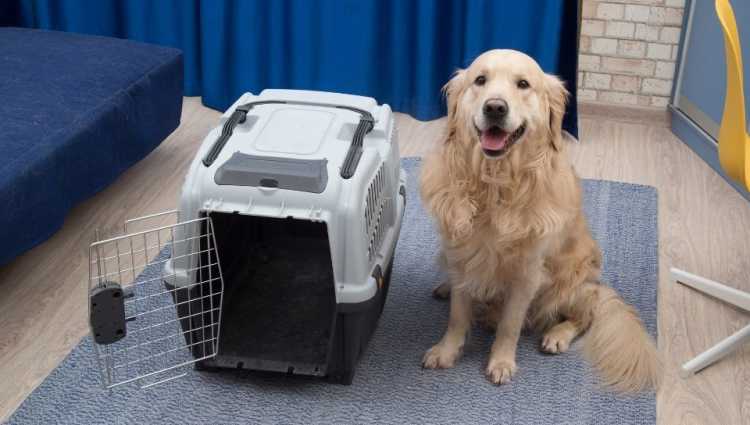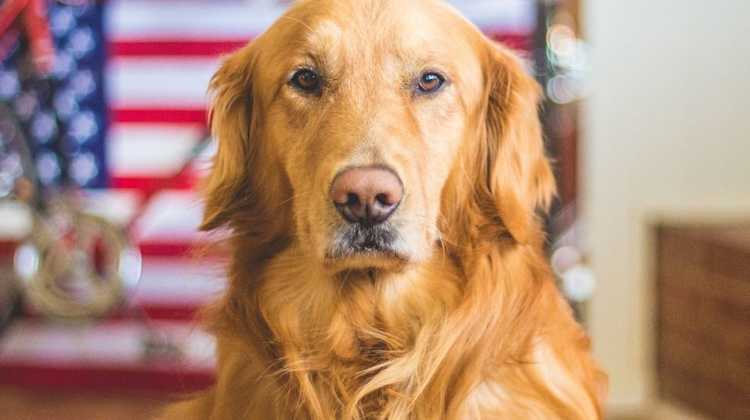Germany: Transporting Pets
by Becca Stewart - September 9th, 2022

Our furry family members are just that – family. But transporting pets to Germany can be a complicated process. The type of pet, time of year, and airline all play a role.
Here’s what you need to know about transporting pets to Germany – and what to do if you must leave them behind.
What types of animals can I bring to Germany?
While it’s legal to bring various animals into Germany, U.S. service members may only bring dogs and cats on military-sponsored flights. Each family is allowed two animals total. It is possible to receive a waiver for more than two animals, but waivers are not guaranteed.
Bringing a reptile, rabbit, ferret, bird, or other animal may be allowed, but the process is much more complex. Talk to your installation’s veterinarian to learn more.
Pet owners are responsible for all veterinary and transportation fees. The military will not reimburse service members for costs related to transporting pets to Germany.
Forbidden dog breeds
By and large, Germany is very dog-friendly. However, the country does have strict “Dangerous Dog Laws,” known officially as the Dog Transfer and Import Restrictions Act. This law forbids certain dog breeds that are considered potentially dangerous. For some American families, these restrictions come as a shock. There are no exceptions to this law, meaning some service members might have to leave their dogs behind.
The following breeds, or any crossbreeds of these animals, are prohibited in Germany:
Pit Bull Terrier
American Staffordshire Terrier
Staffordshire Bull Terrier
Bull Terrier
Each German state can also outlaw certain dog breeds. Some other prohibited breeds include:
Mastiff
Rottweiler
Dobermann
Tosa Inu
To see the most updated list of banned breeds, click here.
If your dog is 100 lbs or more, you might face additional transportation challenges. Check with your moving management office or installation veterinary clinic for more information.
PCSing to Germany with pets
If your dog is not one of the restricted breeds, it’s time to plan your move. Start the process as soon as you get orders to Germany. There are limited spaces available for pet airline transport, so the earlier you start planning, the better.
Your first stop should be your installation’s veterinary office or a certified USDA vet. Your pet will need documentation in both English and German, a “pet passport” showing current vaccines, and an international microchip. Keep this documentation with you on your flight!
Your pet will also need an examination within ten days of your departure to Germany. At this appointment, the vet will fill out an EU Health Certificate, which you will need upon entry into Germany.
You will also need to review the travel requirements for your pet and purchase travel-approved crates or other equipment.
Traveling with your pet
Cats and small dogs can travel in the cabin, in a small carrier at your feet. Do not give them food or water within two hours of the flight (it gets messy otherwise).
Medium and large dogs cannot travel in the cabin. They will travel in hard-sided crates in the airplane’s cargo area. The official military carrier, known as the “Patriot Express,” has limited pet spaces available. If the military transport cannot accommodate your animal, you must take a commercial airline or make other arrangements.
Many commercial airlines no longer allow pets in the cargo area during summer months. If your pet is a brachycephalic (flat-nosed) breed, some airlines may have additional restrictions. While these rules might feel frustrating, they are for the protection of your four-legged family member.
Contact your airline or travel office for more information. Double-check all reservations and requirements about a week before your flight.
Private transport
A few lucky families will get their pets on the Patriot Express. This is a low-cost option, but spaces are limited. Others will need to reserve transportation on a commercial airline. Unfortunately, airlines now offer fewer options for our pets, and some will not take larger pets at all.
Dedicated pet transport flights are another option, as are military-specific charter flights to Germany, but these are very expensive. Some military families report paying thousands out of pocket per pet. Organizations that help offset pet transport costs are popping up nationwide. But applying for and receiving these funds can be tricky.
The bottom line: if you want to bring your pets to Germany (as we know you do!), start saving now.
Leaving an animal behind: what are your options?
Unfortunately, not every family can bring their beloved pet to Germany. Pets get left behind for many reasons, including:
Dogs are a breed restricted by German law
Dogs are too large for airline transport
A family has more than two pets and cannot receive a waiver
PCS takes place in the summer heat, and pets cannot travel in the cargo area
Paying for pet transport isn’t financially feasible
It’s heartbreaking to leave your pet behind. But if you find yourself in this position, you can still give your pet a long, happy life. If at all possible, avoid taking your pet to a rescue or a shelter. Instead, consider the following:
Dogs on Deployment, a nonprofit providing long-term foster care for military families.
Leave your pet with a trusted family member or friend for the duration of your tour.
Put your pet up for adoption. Find a loving owner who can provide for your dog emotionally and financially.
Ask around for other resources. There may still be a way to get your furry friend overseas. Check with military-specific social media groups, ask your installation’s veterinarian, or ask the airline for recommendations.
Want more information about transporting pets to Germany? Check out this helpful guide.







